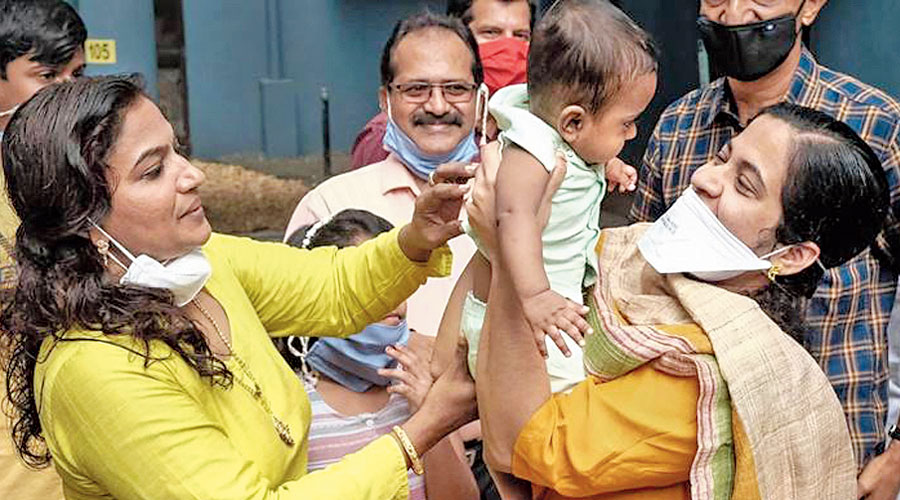Many Calcutta parents who have tested positive for Covid-19 and need hospital admission are facing a predicament apart from the trauma of being infected — where to send their children who have tested negative.
The problem is arising because most city children live in nuclear families, and their relatives and neighbours are reluctant to put them up for the period their parents spend in hospital or a satellite facility.
Doctors and hospitals are receiving calls from such parents who want to know how to deal with the situation.
Last week, the chief executive of a private hospital received a call from a government official, who had tested positive for Covid-19 a week earlier along with his wife. The couple had begun showing mild symptoms when the official called.
“He said he and his wife wanted to admit themselves to hospital but did not know where to send their only child, who had tested negative but could not stay at home alone,” the executive said.
The Medica Superspeciality Hospital recently admitted a 10-year-old cancer patient to its satellite unit although the boy did not need institutional treatment at the time.
“Both his parents were Covid-positive but he had tested negative. The parents were afraid to let him stay with them because he had cancer (a co-morbidity making him particularly vulnerable). But there was no place they could send him, so he was admitted to our satellite unit,” Medica chairman Alok Roy said.
A businessman from Garia and his wife faced a similar quandary after both tested positive for the coronavirus. Their son, who had appeared in his Plus II exams, had to live alone in their apartment.
“We requested several neighbours and relatives but everyone politely refused, saying they had children and elderly people at home,” the businessman said.
“Finally, a relative agreed to put him up. Because of the uncertainty, my wife had to wait a day after my hospital admission to get herself admitted.”
Paediatrician Apurba Ghosh said he was receiving an average of 10 phone calls daily from couples who had tested positive and were worried what to do with their children.
“The rate of Covid-19 infection among children is low compared to adults. The problem parents are facing is how to take care of a child when they themselves are in isolation,” Ghosh, director of the Institute of Child Health, Calcutta, said.
Ghosh added: “Most children live in nuclear families. But even in instances where they have grandparents, it’s not advisable to expose the elderly relatives to chances of infection.”
Nor is it advisable for such children to accompany their parents to the institutional safe homes where some Covid-19 patients with mild or no symptoms are being put up, because it exposes them to multiple sources of infection, Ghosh said. As for infected parents in home isolation who want to send their uninfected children away for a while, Ghosh is advising them to let the very small children stay with them while taking all possible safety measures.
“They must wear facemasks, wash their hands regularly and maintain all other safety norms to reduce the chances of transmitting the infection,” Ghosh said.
Public health experts said the problem stemmed partly from the fear and stigma that large segments of society associate with Covid-19. “The problem has to be addressed by society itself. We have to decide whether or not we want to extend a helping hand to a child,” said Abhijit Chowdhury, a public health expert.
He said the Covid Care Network, an organisation of doctors, government officials and recovered Covid-19 patients, would work out a programme to help such children. “We have to devise a programme to reach out to such parents and counsel neighbours and relatives,” Chowdhury, a mentor to the network, said.
However, there have been instances of neighbours, colleagues and parents of the child’s friends coming forward to help.











